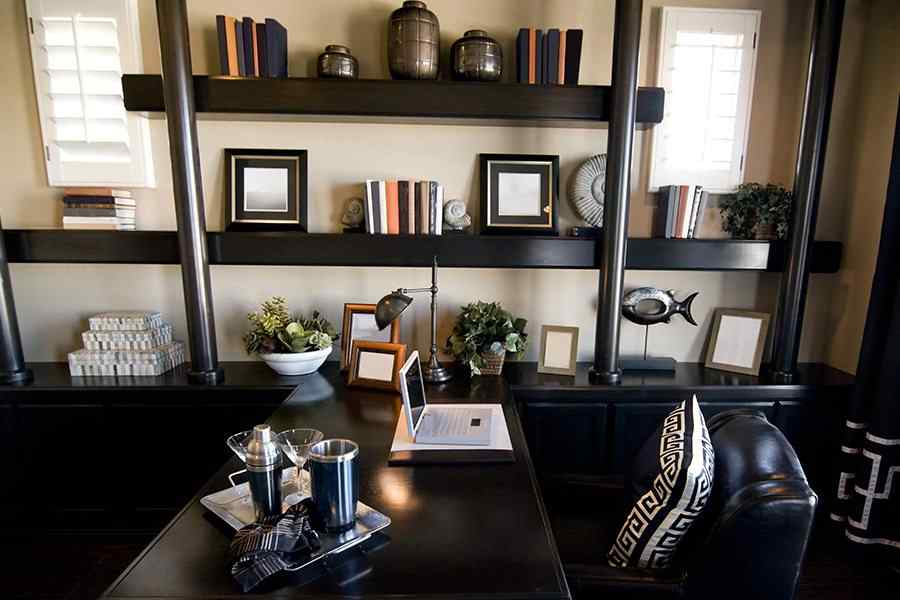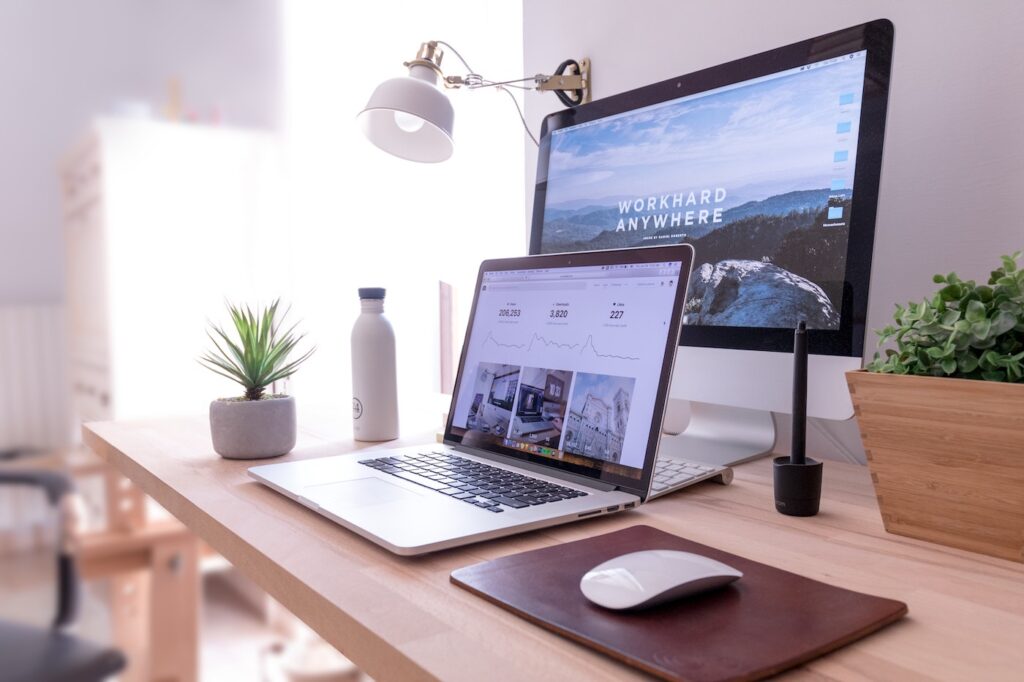
Setting up a home office effectively is crucial for enhancing productivity and ensuring comfort while working. Here are key elements to consider when designing your workspace.
Prioritize Comfort and Ergonomics
:strip_icc():format(webp)/cathiehong-9330-ab04dc74fb0d4df7924d3b6750659890.jpg)
The foundation of a productive home office is comfort, particularly through ergonomic furniture. Invest in a good ergonomic chair that supports your posture, as this can significantly reduce back pain and fatigue. Choose a desk at the right height to match your natural elbow position when seated, promoting a healthy posture throughout your workday[1][6]. Options like height-adjustable desks or sit-stand desks provide flexibility and encourage movement, which are essential for long hours of work[4].
Optimize Your Workspace

Your work area should be tidy and organized. A cluttered desk can decrease productivity and increase stress levels. Use storage solutions, such as filing cabinets and desk organizers, to keep your workspace clear of distractions[1][3]. Additionally, consider using vertical file holders or baskets to manage project materials efficiently[6]. This organization ensures that essential tools and files are easily accessible, minimizing interruptions during work.
Implement Proper Lighting

Natural light plays a vital role in maintaining your energy levels and mood. Set your desk near a window, if possible, to maximize natural lighting. If your workspace lacks sufficient sunlight, incorporate adjustable desk lamps with LED bulbs to reduce eye strain and enhance focus[3][4]. Avoid glaring light sources by placing your desk to prevent direct sunlight hitting your screen, which can lead to discomfort during longer tasks[6].
Design for Productivity

When creating your home office, consider the ambiance and color scheme, as these can influence your productivity. Soft grays and whites create a calm environment, while pops of color can enhance energy and creativity. For instance, adding decorative features like artwork or house plants not only brightens the space but also helps reduce stress and boosts focus[3][4][5]. A well-chosen color palette can inspire greater creativity while avoiding overwhelming distractions.
Manage Noise
Noise can significantly impact your concentration; therefore, soundproofing your office may be beneficial, especially if you live in a busy area[1][5]. Use rugs, curtains, or sound-absorbing materials to minimize external noise. Alternatively, investing in noise-canceling headphones can help you maintain focus in a lively environment[4][5].
Create a Dedicated Area for Work
It is essential to delineate your work area from your personal living space. Establish a designated room or section of a room for your office to form a mental boundary between work and leisure[3][6]. If space is limited, consider using room dividers or bookshelves to create a distinct workspace, fostering a professional mindset as you switch into work mode[5].
Incorporate Technology Wisely

Ensure your workspace is technologically equipped to handle your tasks efficiently. Employ good-quality peripherals such as an external keyboard and mouse, which can help avoid posture-related issues that arise from working directly on a laptop[6]. Additionally, having adequate charging solutions nearby for your devices will keep you powered without the hassle of searching for plugs during work.
Develop Work Habits and a Routine
To maintain productivity while working from home, establish a routine. Treat your home office like a regular office by setting specific work hours and taking scheduled breaks, which can help maintain your focus and energy levels throughout the day[1][6]. Techniques such as the Pomodoro Technique, where you work in focused bursts followed by short breaks, can be particularly effective for managing time[4].
Stay Hydrated and Energized
:strip_icc():format(webp)/71WNWRLJCsL._AC_SL1500_-a201c035c28e42628a9a396f8618196b.jpg)
Lastly, having a source of hydration within reach can enhance your concentration. Keep a water bottle on your desk to encourage regular sipping and prevent dehydration, which can lead to decreased alertness[3]. If you enjoy coffee or tea, consider setting up a small station within your office for quick access to your favorite beverages[5].
Conclusion
Crafting an effective home office space requires a focus on comfort, organization, lighting, and technology. By prioritizing your physical environment and cultivating good work habits, you can create a productive workspace that supports your professional needs and personal well-being while working from home.
Get more accurate answers with Super Pandi, upload files, personalized discovery feed, save searches and contribute to the PandiPedia.
Let's look at alternatives:
- Modify the query.
- Start a new thread.
- Remove sources (if manually added).